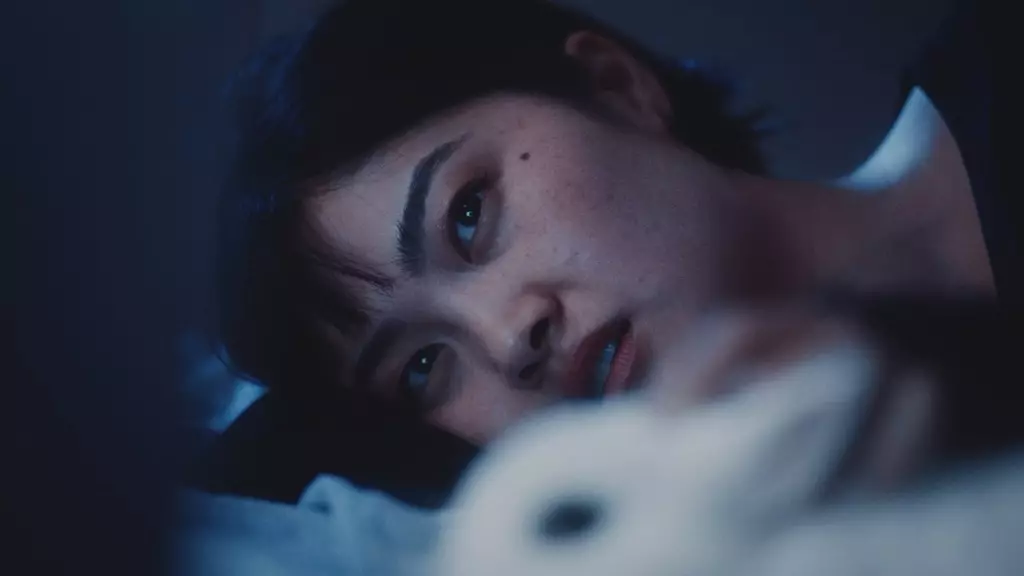Katarina Zhu’s directorial debut, “Bunnylovr,” serves as a poignant exploration of identity, emotional turbulence, and the pervasive impact of digital culture on personal relationships. Through the lens of the protagonist, Becca—a Chinese American navigating the complexities of life in New York City while working as a cam girl—Zhu unravels deeply ingrained societal issues such as paternal relationships, privilege, and the quest for self-acceptance. This narrative is not merely a coming-of-age story; it is a multi-layered reflection of the ways in which women are often objectified and fetishized in contemporary society.
Becca epitomizes the struggles faced by many young adults today, caught in the relentless grind of urban life while juggling the weight of personal expectations and societal norms. In her dual role as a cam girl, she finds herself torn between her desires and the demands of a world that often reduces her identity to mere sexuality. This struggle is compounded by her encounters with various male figures in her life—her estranged father, her manipulative ex-boyfriend, and her seemingly supportive best friend, who ultimately perpetuates harmful dynamics through her art. Each of these relationships serves as a poignant commentary on how women often navigate love, attachment, and self-worth against a backdrop of toxicity and manipulation.
The Bunnies as Symbols of Emotional Growth
The introduction of Milk, Becca’s newfound pet bunny, signifies a critical turning point in her life. Initially resistant to taking on the responsibility of caring for another being—a reflection of her tumultuous journey—Becca soon discovers that nurturing Milk helps her rediscover a sense of agency that she had long lost. The relationship between Becca and Milk goes beyond mere companionship; it represents an awakening. In nurturing Milk, Becca begins to reverse the narrative of objectification she has encountered in her life. The act of caring for another being allows her to grapple with her autonomy, something she desperately needed amidst a perpetual cycle of being used by others.
The film poignantly weaves in the dynamics of Becca’s various relationships, particularly highlighting her profound yet complicated friendship with Bella, the privileged artist. Their bond reflects both the beauty and the harsh realities of friendship, particularly when the lines between support and exploitation blur. Bella’s creative interpretations of Becca ultimately serve as a reminder of how societal privileges can often overshadow individual struggles, leaving those less privileged feeling objectified and invalidated. This aspect of the narrative resonates with many viewers, inviting reflection on the friends who stand by us but may not fully understand our pain.
As Becca navigates her tumultuous journey, the film evolves into an exploration of mindfulness and self-love. Acknowledging the emotional burdens imposed by her relationships, she embarks on a path toward healing. The contours of her life begin to shift as she learns to embrace both her strengths and vulnerabilities. The evolution towards self-acceptance becomes a central theme, culminating in Becca’s decision to let go of her unhealthy connections while nurturing the bonds that empower her.
In “Bunnylovr,” Zhu not only crafts a story that resonates with the experiences of many young adults today but also engages with deeper dialogues surrounding identity, agency, and emotional well-being. By centering her narrative on a character who must grapple with multifaceted relationships in a digital world, Zhu captures a universal truth about the search for personal fulfillment amidst external pressures. This film is more than just a reflection of one woman’s journey; it serves as a mirror to our collective struggles, illuminating the paths we take toward self-discovery in an increasingly complex digital age. As Becca finally learns to prioritize her own needs and desires, she becomes a symbol of resilience, inspiring viewers to embrace their journeys of self-love and acceptance.
